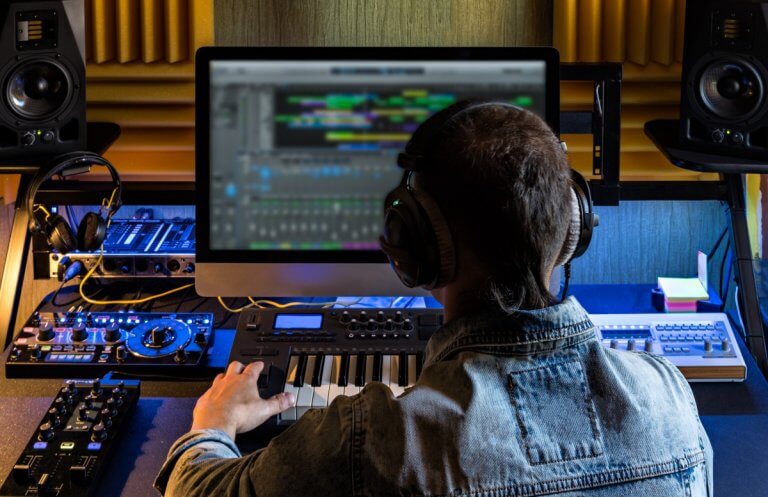
It’s easy to fall into a clique at university and stick to the status quo. You might find yourself surrounded by music lovers discussing the best albums from the 80s and wearing band tees. Or you might be one of the science kids, enjoying lab experiments and research.
Although the Hollywood depiction of university would have you believe you have to fit into one group, a physics professor at the University of Oregon is teaching how science and music might be more connected than you think.
Physics professor Timothy Jenkins told The Daily Emerald:
“A lot of people think of science as strictly an intellectual pursuit, but it’s a creative pursuit as well. Certainly, music helps in the creative process.”
Jenkins is now teaching a class on the relationship between physics and music. The course invites students from both departments to work together.
Research shows playing a musical instrument can help create neural pathways that allow people to understand scientific theories.
Conversely, Jenkins says his understanding of physics has given him a better understanding of the acoustic sounds when playing guitar, which allows him to be more creative.
“Galileo said something along the lines of, ‘The book of nature is written in the language of mathematics’ but that applies to music as well,” said Jenkins.

Music can help us understand the scientific world around us, and vice-versa. Source: Brandon Wilson/Unsplash.com
Students from science and music backgrounds are encouraged to work together and learn from each other during the class.
Jenkins says students from the two departments do better when they work together, because of the clarity of thought needed to explain their position and learning different ways to solve the same problem.
In our complex interconnected world, students with interdisciplinary skills and a multifaceted perspective will have more options at their fingertips after graduation.
Doing some science in music this week! It's wicked fun!!! And loud! Look out for more!@Center_CCS @ChristyWhittles pic.twitter.com/WOkwEWwk3e
— Ms. Errgong-Weider (@CenterSMusic) April 11, 2018
The lines between different careers and roles are being blurred by incoming automation, meaning graduates will benefit from dynamic thinking and human problem-solving.
Courses such as the one taught by Jenkins show students they are not limited to their degrees and there is value in understanding different perspectives.
Playing or creating music is a full-brain activity, meaning it uses both the right-brain and left-brain. This full-bodied approach will give students well-rounded knowledge, allowing them to respond to global changes they will face.







